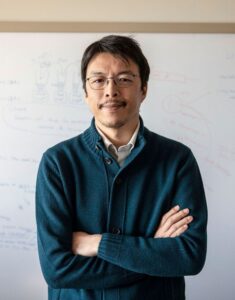Translating single-cell microfluidics from academic lab to global biotech impact
We’re honoured to welcome Dr Carl Hansen, CEO & Co-Founder of AbCellera, for a special research seminar
Events
Calendar

- This event has passed.
SBME Seminar: In Vitro Gametogenesis: Advancing Understanding and Application – Dr. Katsuhiko Hayashi
April 19, 2024 @ 11:00 am - 12:00 pm PDT
SBME Seminar: In Vitro Gametogenesis: Advancing Understanding and Application – Dr. Katsuhiko Hayashi
Seminar Abstract:
The reconstitution of gametogenesis using pluripotent stem cells, which eventually produces functional gametes, has long been sought in reproductive biology and developmental biology, as it would contribute not only to a better understanding of the mechanisms underlying totipotency but also to an alternative source of gametes for reproduction. So far, we have developed culture systems that induce primordial germ cells, oocytes, and female gonadal somatic cells from mouse pluripotent stem cells, such as embryonic stem cells (ESCs) and induced pluripotent stem cells (iPSCs). By using these systems, it becomes possible to produce functional eggs from ESCs/iPSCs entirely in culture without the need for embryonic cells. These culture systems are extremely useful, as genetic function in not only germ cells but also surrounding somatic cells can be easily and swiftly evaluated in culture. In the seminar, I will update recent advances in the reconstitution of gametogenesis and new findings in the mechanisms underlying germ cell development.

Dr. Katsuhiko Hayashi’s Biography
Katsuhiko Hayashi (born Dec. 2, 1971), a full professor in Department of Genome Biology, Graduate School of Medicine, Osaka University, is working on germ cell development and its reconstitution in vitro through his career: 1994-1996, MS course of Meiji University; 1996-2002, an assistant professor in Tokyo University of Science; 2002-2005, a staff researcher in Osaka Medical Center (Ph.D. 2004); 2005-2009, post-doctoral fellow in the Gurdon Institute, University of Cambridge; 2009-2014, associate professor in Kyoto University; and 2014-2021 a full professor in Kyushu University. From 2021, He has been in the current position in Osaka University. The research aim of the Hayashi’s group is to understand genetic and epigenetic regulation of mammalian oocyte differentiation using a unique culture system that produces oocytes from pluripotent stem cells.
Location:
LSC 1003 (LT3)